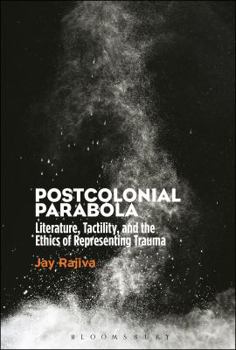Postcolonial Parabola: Literature, Tactility, and the Ethics of Representing Trauma
Select Format
Select Condition 
Book Overview
Postcolonial Parabola: Literature, Tactility, and the Ethics of Representing Trauma interrogates the relationship between the literary representation of postcolonial trauma and the embodied experience of reading. As the conditions from which postcolonial literatures have emerged require a break from "proper" ways to represent trauma, postcolonial writers expand and complicate the practice of reading itself.
Though postcolonial literature's capacity to represent trauma has received considerable scrutiny in recent years, Postcolonial Parabola is innovative in its consideration of the postcolonial text as a literary object. Working within a phenomenological framework that ties together disparate postcolonial periods, Jay Rajiva explores how narrative structure shapes the experience of reading the postcolonial literatures of South Africa, India, and Sri Lanka. He argues that these texts enmesh the reader in an asymptotic tactility: though readers might approach the disclosure of trauma, they cannot arrive at it. Awareness of the asymptotic nature of reading such works is crucial to a meaningful, ethical engagement with literary representations of postcolonial trauma.Format:Paperback
Language:English
ISBN:1501351508
ISBN13:9781501351501
Release Date:March 2019
Publisher:Bloomsbury Academic
Length:224 Pages
Weight:0.65 lbs.
Dimensions:0.5" x 6.0" x 9.0"
Customer Reviews
0 rating





